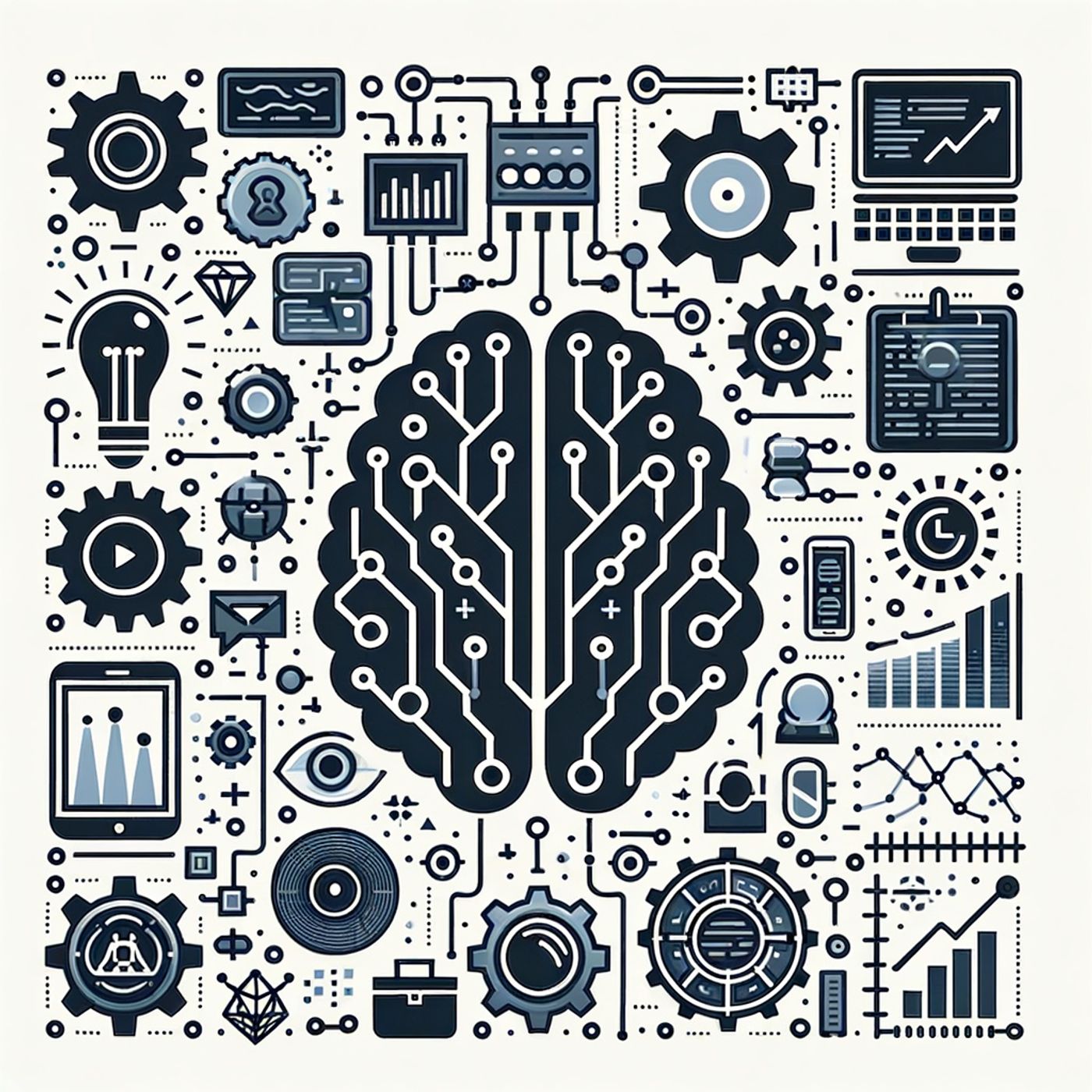Jan 28 2025 3 mins
This is you Applied AI Daily: Machine Learning & Business Applications podcast.
As we delve into 2025, the integration of machine learning into business applications continues to transform industries, offering tangible value through automation, prediction, and innovation. This article explores real-world AI applications, implementation strategies, and future trends, providing practical insights for businesses looking to leverage AI.
Machine learning is being used across various sectors to solve complex problems. For instance, DeepMind developed a model to automatically detect diabetic retinopathy by analyzing eye images, achieving accuracy comparable to human experts and significantly accelerating the screening process[2]. Similarly, PayPal implemented a machine learning system to enhance fraud detection, analyzing millions of transactions in real-time to identify patterns and anomalies indicative of fraudulent activity.
Implementation strategies often involve integrating machine learning models with existing systems. For example, Tesla continuously collects data from its fleet of connected vehicles to improve and update the Autopilot’s machine learning models, ensuring the system evolves and improves with accumulated driving data. Netflix uses machine learning models to analyze viewer habits and preferences, guiding content creation and acquisition strategies to enhance user engagement.
Key areas such as predictive analytics, natural language processing, and computer vision are driving industry-specific applications. In healthcare, machine learning helps optimize patient care and operations by analyzing electronic health records to forecast health risks and refine treatment plans. In fintech, companies like PayPal monitor user activities to identify suspicious patterns, minimizing fraud. In logistics and transportation, UPS reduces delivery times and costs with machine learning-driven route planning.
Technical requirements and solutions are crucial for successful AI implementation. Businesses must assess their IT infrastructure for AI-readiness, ensuring it can handle AI workloads and integrate AI tools seamlessly[3]. Data availability and quality are also essential, as machine learning algorithms require large datasets to learn and adapt.
Looking ahead, the machine learning market is poised to grow from $26 billion in 2023 to over $225 billion by 2030, driven by trends such as advanced conversational agents, automated manufacturing processes, and ethical guidelines for decision-making algorithms[5]. However, an acute shortage of skilled data scientists and engineers could slow down potential growth if not addressed.
Practical takeaways include the need for businesses to educate and train their staff internally or resort to outsourced agencies for expert ML consulting. Companies must also evaluate security and compliance, ensuring AI-specific talent and expertise are available.
In recent news, the growth of specialized large language models (SLMs) trained for specific domains or tasks is expected to continue in 2025, offering practical and scalable solutions for businesses[1]. Additionally, the integration of AI into existing business applications requires careful planning and assessment of IT infrastructure.
In conclusion, machine learning is reshaping industries by solving real-world problems and setting new standards of innovation and efficiency. As businesses continue to harness the power of AI, we can anticipate further advancements that will transform our approach to data, decision-making, and development across every sector.
For more http://www.quietplease.ai
Get the best deals https://amzn.to/3ODvOta
As we delve into 2025, the integration of machine learning into business applications continues to transform industries, offering tangible value through automation, prediction, and innovation. This article explores real-world AI applications, implementation strategies, and future trends, providing practical insights for businesses looking to leverage AI.
Machine learning is being used across various sectors to solve complex problems. For instance, DeepMind developed a model to automatically detect diabetic retinopathy by analyzing eye images, achieving accuracy comparable to human experts and significantly accelerating the screening process[2]. Similarly, PayPal implemented a machine learning system to enhance fraud detection, analyzing millions of transactions in real-time to identify patterns and anomalies indicative of fraudulent activity.
Implementation strategies often involve integrating machine learning models with existing systems. For example, Tesla continuously collects data from its fleet of connected vehicles to improve and update the Autopilot’s machine learning models, ensuring the system evolves and improves with accumulated driving data. Netflix uses machine learning models to analyze viewer habits and preferences, guiding content creation and acquisition strategies to enhance user engagement.
Key areas such as predictive analytics, natural language processing, and computer vision are driving industry-specific applications. In healthcare, machine learning helps optimize patient care and operations by analyzing electronic health records to forecast health risks and refine treatment plans. In fintech, companies like PayPal monitor user activities to identify suspicious patterns, minimizing fraud. In logistics and transportation, UPS reduces delivery times and costs with machine learning-driven route planning.
Technical requirements and solutions are crucial for successful AI implementation. Businesses must assess their IT infrastructure for AI-readiness, ensuring it can handle AI workloads and integrate AI tools seamlessly[3]. Data availability and quality are also essential, as machine learning algorithms require large datasets to learn and adapt.
Looking ahead, the machine learning market is poised to grow from $26 billion in 2023 to over $225 billion by 2030, driven by trends such as advanced conversational agents, automated manufacturing processes, and ethical guidelines for decision-making algorithms[5]. However, an acute shortage of skilled data scientists and engineers could slow down potential growth if not addressed.
Practical takeaways include the need for businesses to educate and train their staff internally or resort to outsourced agencies for expert ML consulting. Companies must also evaluate security and compliance, ensuring AI-specific talent and expertise are available.
In recent news, the growth of specialized large language models (SLMs) trained for specific domains or tasks is expected to continue in 2025, offering practical and scalable solutions for businesses[1]. Additionally, the integration of AI into existing business applications requires careful planning and assessment of IT infrastructure.
In conclusion, machine learning is reshaping industries by solving real-world problems and setting new standards of innovation and efficiency. As businesses continue to harness the power of AI, we can anticipate further advancements that will transform our approach to data, decision-making, and development across every sector.
For more http://www.quietplease.ai
Get the best deals https://amzn.to/3ODvOta
